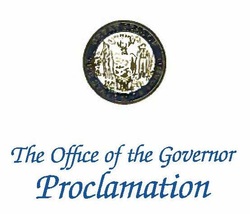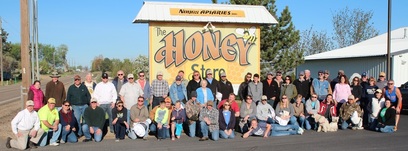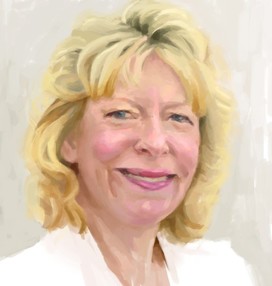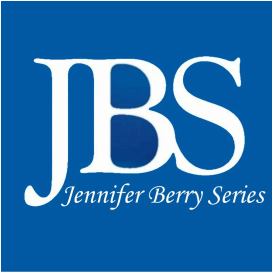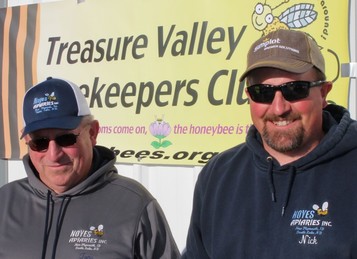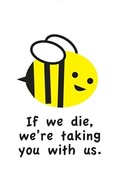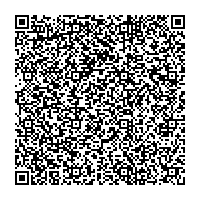|
|
YAHOO! IT'S
|
National Honey Bee Day
|
ATTENTION: Road Kill Warriors!
"ROAD KILL RECIPES"
Image by: Sarah Stierch (CC BY 4.0)
Do you got a favorite Road Kill recipe that you'd like to share with Jennifer?
Send your favorites to: [email protected]
After judging the Western Idaho Fair honey entries on Thursday, August 18, your Fair judges will pick the most tantalizing recipe for Jennifer's Sunday morning breakfast. The winner can join Jennifer & entourage for a mouth watering meal served up with all the fixin's. Enter early & Enter often!! Don't miss this opportunity to sup with Jennifer!!!
Send your favorites to: [email protected]
After judging the Western Idaho Fair honey entries on Thursday, August 18, your Fair judges will pick the most tantalizing recipe for Jennifer's Sunday morning breakfast. The winner can join Jennifer & entourage for a mouth watering meal served up with all the fixin's. Enter early & Enter often!! Don't miss this opportunity to sup with Jennifer!!!
Welcome All Beekeeping EnthusiastsWelcome to the Treasure Valley Beekeepers Club of Idaho.
The Treasure Valley Beekeepers Club provides a great opportunity for everyone with an interest in bees to come & gather great resources and knowledge about the honeybee. Practical knowledge, workshops and demonstrations are provided throughout the year. At every meeting, we discuss important bee topics, along with a Q & A with experienced beekeepers. Everyone is welcome! To become a club member, come to any meeting to sign up. Dues are $10.00/yr or $15.00 for a family/yr. If you can't make our next meeting; you can download, print, fill out and mail in our registration form. The mailing address is located on the form.
Club Meetings |
| ||
|
We recently gathered for a field day at The Honey Store in Fruitland, ID, on Saturday, April 16, 2016, for "Nuc Pick-Up Day." Lessons from the Masters began @ 9 am. Many thanks to Shilo, Nick, Josh, Debbie, Tony and Family for hosting another great outing. The BEST!
Our next regular Club meeting is scheduled for September 20 at the IOA Hall in Boise.
We meet the third Tuesday of most every month (unless we have a field trip, a Pub Swarm, etc.) at 6:30 pm, in Boise at: 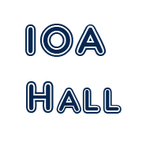
IOA Hall
401 Brazil St. (off Sunrise Rim, near Vista and I-84) Boise Please bring your own drinks. Map
Need Hive Components Fast?
Mike Morrison has a list of equipment that you can purchase locally and avoid shipping charges. Please see the following list for what he has available and his contact info:
YOUR TVBC OFFICERS
President/(Queen Bee) – Karla Kimball
Vice-President – Joyce Gebhardt Treasurer/Keeper of the Envelope – Rena Alexander Secretary/Working Drone – Ken Sonnen Past-President – Chad Dickinson Committee Positions: Volunteers (no vote necessary) Web Queen Chair – MJ Oresik Web Assistant Drone - Chad Dickinson Community Education Chair - Terry Fackrell Plans Club education - Bug Days, Western Idaho Fair, community appearances by Club members, etc. Special Projects – Carole Kanizar & Steve Sweet Foothills Learning Center Activities, National Honey Bee Day, the occasional "Drink the Kool-Aid" Sessions ;^) and the Winter Hobbyist Session. |
What Should a Beekeeper be Doing Now?September
September beekeeping activities are a continuation of those started in August. You will need to tend to nest consolidation, pest and disease control, fall feeding, and winter preparation. • Colonies should be in winter configuration -- too much space is a liability now. • Check hives to make sure they are queenright, healthy, and have populations sufficient to overwinter. Small hives can be united. • Check for adequate food stores -- heft hives (tilt one side up). They should be noticeably heavy. If not, feed for weight -- heavy sucrose syrup, 60% sugar by weight. • Finish Varroa treatments and retest for Varroa to insure efficacy of treatments. Always be on the lookout for American foulbrood. • Insure that lids are water tight and that there is an upper ventilation hole. Dry bees can endure cold and survive, but if wet from leaky lids or condensation, they may not. • Add entrance reducers/mouse guards. • If possible have an ideal winter yard. An ideal winter yard is protected from wind and pockets of cold air, and exposed to the sun. Face hive entrances towards the sun and away from prevailing wind. Tilt hives so water drains away from the entrances. • Try to prevent robbing. Don't keep hives open too long. • Protect extracted supers from wax moths. • Lastly, once your hive is set for winter, don't keep popping the lid off, for when the weather is cold, the bees will be unable to re-glue the lid down. Use a heavy object, if you do break the seals. • Varroa mites: You should sample to estimate your Varroa mite load, and treat if your estimate is high (more than 3 mites per 100 bees sampled out of the broodnest). Check this cool poster out if you have any questions about testing your bees for that despicable, miserable vermin, the Varroa d. mite: http://tinyurl.com/akx2yzc Manage Your Mites! • Nutrition and Fall Feeding are important topics right now. Check out both these video clips: Apis m. and Randy Oliver. The above information was excerpted from the Oregon State Beekeepers Association webpage, found at: http://www.orsba.org/htdocs/home.php (June 2, 2012). The Treasure Valley Beekeepers Club extends a special thanks to Todd Balsiger, Forest Grove, OR for permission to post this information. Foothills Learning Center
The TVBC has partnered with the Foothills Learning Center to provide educational opportunities about the Apis mellifera (honey bees) for the public. We have a bee yard on the grounds used for the Honey Bee Apprentice Program taught each year for new beekeepers. Please visit their website for all classes available at the Foothills Learning Center.
CONTACT US | ||||

